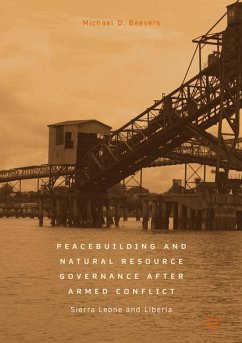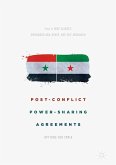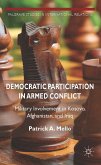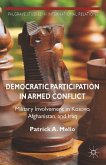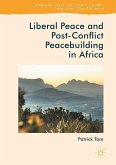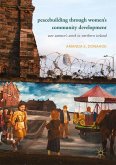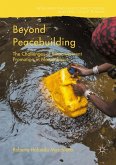This book argues that a set of persuasive narratives about the links between natural resource, armed conflict and peacebuilding have strongly influenced the natural resource interventions pursued by international peacebuilders. The author shows how international peacebuilders active in Liberia and Sierra Leone pursued a collective strategy to transform "conflict resources" into "peace resources" vis-à-vis a policy agenda that promoted "securitization" and "marketization" of natural resources. However, the exclusive focus on securitization and marketization have been counterproductive for peacebuilding since these interventions render invisible issues connected to land ownership, environmental protection and sustainable livelihoods and mirror pre-war governing arrangements in which corruption, exclusion and exploitation took root. Natural resource governance and peacebuilding must go beyond narrow debates about securitization and marketization, and instead be a catalyst for trust-building and cooperation that has a local focus, and pursues an inclusive agenda that not only serves the cause of peace, but the cause of people.

